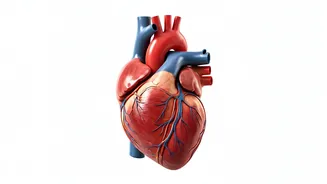Women's Heart Health
Cardiovascular disease is becoming a leading cause of death among women. This trend emphasizes the critical need for increased awareness, understanding,
and proactive strategies. These diseases encompass a range of conditions, including heart attacks, strokes, and other related problems. Women often experience unique symptoms compared to men, making early diagnosis and treatment critical. Factors contributing to this issue include lifestyle, genetics, and hormonal changes associated with aging and menopause. Preventative measures and lifestyle adjustments, such as a balanced diet, regular exercise, and stress management, play a vital role in protecting women's cardiovascular health and reducing the risk of these life-threatening conditions. Regular health check-ups and early intervention can lead to significantly better health outcomes.
Contributing Factors Examined
Several factors contribute to the increasing prevalence of cardiovascular diseases among women. These include, but are not limited to, the effects of lifestyle choices. Unhealthy dietary habits, such as a diet high in processed foods, saturated fats, and sugars, can contribute to elevated cholesterol levels and blood pressure. Sedentary lifestyles, characterized by a lack of physical activity, further exacerbate the risk. Genetic predispositions also play a significant role; a family history of heart disease increases an individual's vulnerability. Hormonal changes, particularly during menopause, can impact cardiovascular health. Furthermore, conditions such as diabetes and hypertension are often intertwined and further increase the risk, underscoring the importance of comprehensive health management strategies that address all these elements.
Prevention Strategies: Essential
Preventative measures are essential for reducing the risk of cardiovascular diseases in women. Adopting a heart-healthy lifestyle is a cornerstone of prevention. This includes a balanced diet rich in fruits, vegetables, whole grains, and lean proteins, while limiting saturated and trans fats, sodium, and added sugars. Regular physical activity, such as brisk walking, jogging, or any activity that elevates the heart rate, is also crucial. It is recommended to engage in at least 150 minutes of moderate-intensity or 75 minutes of vigorous-intensity aerobic activity per week. Managing stress through techniques like yoga, meditation, or deep breathing can lower blood pressure and improve overall heart health. Regular check-ups are also vital for monitoring blood pressure, cholesterol levels, and other essential health indicators. Early detection and intervention can significantly impact outcomes.













